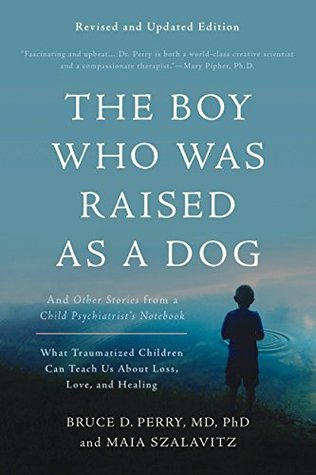More on this book
Community
Kindle Notes & Highlights
Read between
April 26 - April 30, 2024
The sad reality is that these stories are but a tiny percentage of the many we could have told. Over the last ten years, our clinical group at The ChildTrauma Academy has treated more than a hundred children who have witnessed the murder of a parent.
By conservative estimates, about 40 percent of American children will have at least one potentially traumatizing experience by age eighteen: this includes the death of a parent or sibling, ongoing physical abuse and/or neglect, sexual abuse, or the experience of a serious accident, natural disaster, or domestic violence or other violent crime. In
one in eight children under the age of seventeen reported some form of serious maltreatment by adults within the past year, and about 27 percent of women and 16 percent of men reported as adults having been sexually victimized during childhood.
Also, each year some 800,000 children will spend time in foster care and millions more are victims of natural disasters and devastating automobile accidents.
more than eight million American children suffer from serious, diagnosable, trauma-related psychiatric problems.
Working with traumatized and maltreated children has also made me think carefully about the nature of humankind and the difference between humankind and humanity. Not all humans are humane. A human being has to learn how to become humane.
Negative emotions often make things even more memorable than positive ones because recalling things that are threatening—and avoiding those situations in the future if possible—is often critical to survival.
The major predators of human beings are other human beings. Our stress response systems, therefore, are closely interconnected with the systems that read and respond to human social cues. As a result we are very sensitive to expressions, gestures, and the moods of others.
Recognizing the power of relationships and relational cues is essential to effective therapeutic work and, indeed, to effective parenting, caregiving, teaching, and just about any other human endeavor.
When you discuss your memory of an experience, the interpretation you hear from a friend, family member, or a therapist can bias how and what you recall the next time you pull up that “file.”
from doctor to doctor, undergoing unnecessary painful and invasive tests and procedures. In order to
As technology has advanced, we have gotten farther and farther away from the environment for which evolution shaped us. The world we live in now is biologically disrespectful; it does not take into account many of our most basic human needs and often pulls us away from healthy activities and toward those that are harmful.
we are social mammals and could never have survived without deeply interconnected and interdependent human contact. The truth is you
cannot love yourself unless you have been loved and are loved. The


